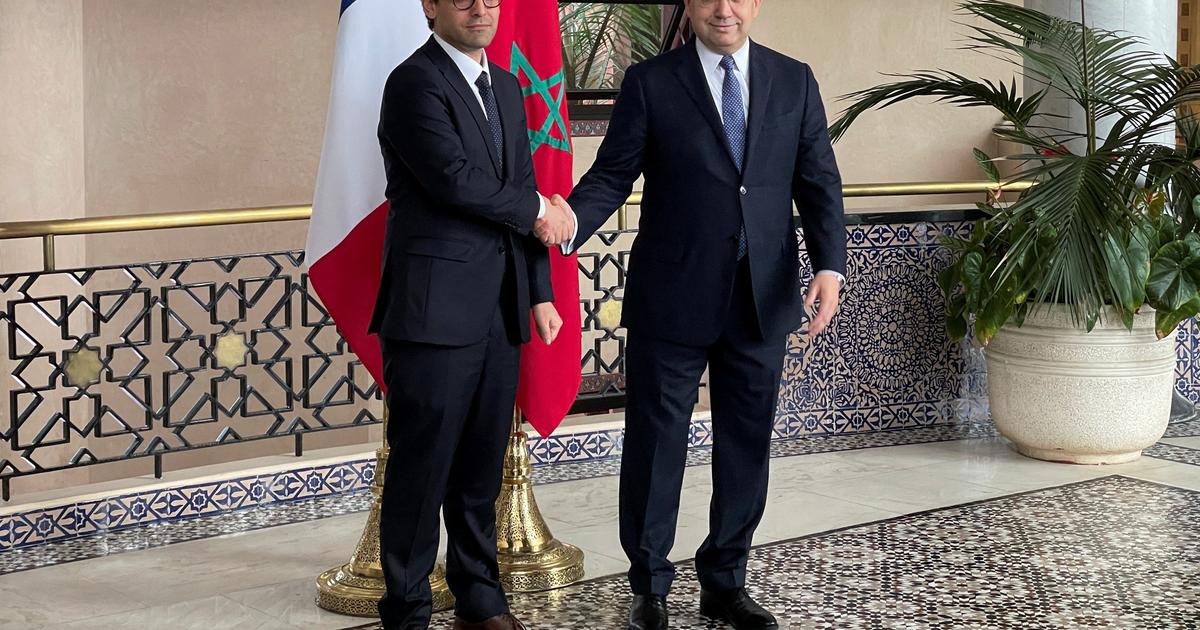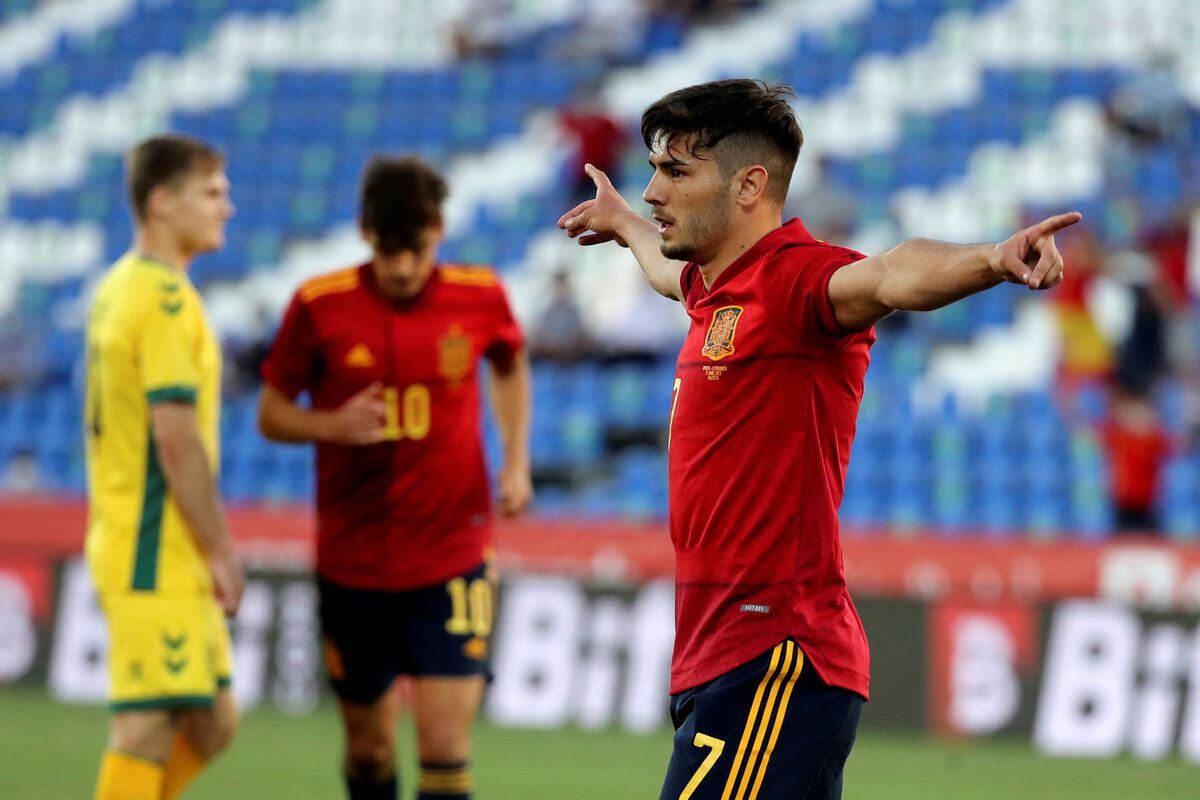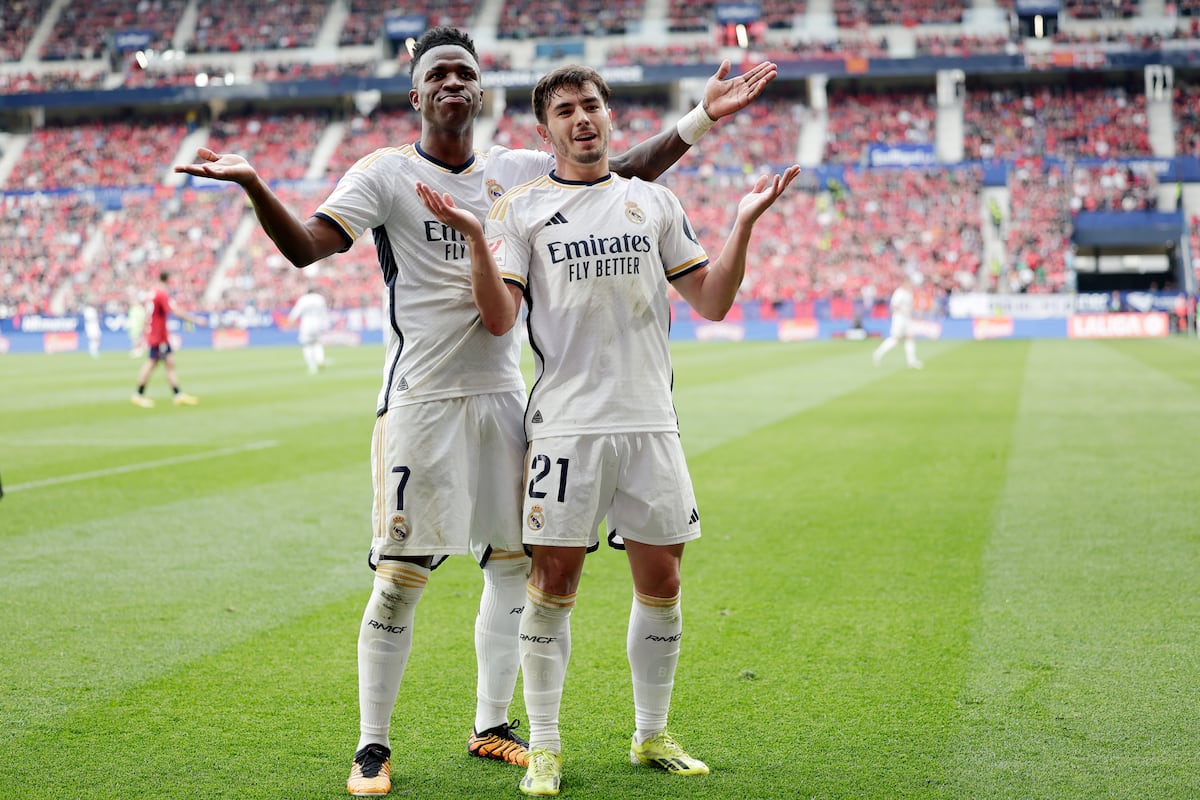Recovered from the covid infection that nearly ended his life in a Spanish hospital in 2021 and that clouded relations between Madrid and Rabat to the maximum, Brahim Gali, 73, speaks calmly on Monday night with four European media, including EL PAÍS, in the Dakhla refugee camp (in the Algerian desert surrounding Tindouf).
The leader of the Polisario Front wears the brown tunic of a notable Bedouin, invested as president of the self-proclaimed Saharawi Arab Democratic Republic (SADR), a State that is recognized by fifty countries (among which Spain does not appear).
Between his folds, the olive green scarf-turban of his military campaign uniform appears.
In the stony desert of the hamada,
The Polisario Front congress has been beating the war drums against Morocco since last weekend after more than two years of rupture of the ceasefire.
His eyes reflect spite when he defines the turn taken last year by the Spanish government over the Sahara as a new "betrayal" that "removes the same knife [the abandonment of Spain as a colonial power in 1975] in the same wound."
Question.
The motto of the Polisario congress is the intensification of the armed struggle, after having returned to arms in 2020. What are the objectives to obtain self-determination through combat?
Reply.
Taking back our arms has been imposed on us by the systematic violations of the ceasefire by the Moroccan Army.
We have accompanied the international community for 30 years to apply what it promised to the Sahrawis in 1991. After almost 30 years, Morocco once again violated the agreements between the United Nations and the Polisario Front, and it had no choice but to return to arms and defend dignity.
It is a right that consecrates international legality to the occupied and colonized peoples like the Saharawi.
War is not an objective as such, but a means to reach a definitive solution that guarantees the Saharawi people their dignity and independence.
Q.
What did you think when the letter from the President of the Spanish Government, Pedro Sánchez, addressed to Mohamed VI, was known, in which he considered the proposal for autonomy within Morocco as the most serious, realistic and credible option for the Sahara? Western?
R.
It was a surprise for all the Sahrawis.
It is not what was expected.
For the second time in less than 50 years, a betrayal has been repeated and the same knife is removed from the same wound.
The Saharawi people expected the Spanish Government to assume its historical, legal and political responsibility to respect international legality and fulfill the duties that concern Spain regarding Western Sahara as an administering power and to put an end to the Moroccan occupation, helping the organization of a self-determination referendum.
Q.
How do you rate the alleged corruption plot in the European Parliament, which involves Morocco, and in what aspect do you think it has harmed the interests of the Saharawi people?
R.
We are not surprised.
We were sure that behind the behavior of the European Parliament in recent years with the rejection of the opinions of the European Court of Justice [on the Sahara] there was corruption.
It is necessary to explain what is inexplicable in Europe, where we consider that justice is superior to politics.
What the corruption plot has shown is that individuals, specific people, have imposed that all the agreements signed between the European Union and Morocco be reviewed [in the Eurochamber].
This reinforces the approach of the Saharawi people.
Europe must be part of the solution and not part of the problem.
Q.
In the Polisario Front congress, more conflicting positions than usual are being debated and the historical leader Bashir Mustafa Sayed has presented his candidacy to relieve him of office. What does it mean to intensify the war?
With what limits?
Do you see a lot of pressure from the Sahrawis?
R.
It is not a secret that the Sahrawis have cooperated with the international community for 30 years to reach a peaceful solution.
But in the last 10 or 12 years there has been a demand from all the people to get out of this situation, when there are no prospects for a solution due to the Moroccan obstruction and the failure of the United Nations to assume its responsibilities.
The debate is to seek all means to intensify the armed struggle against the Moroccan Army.
There is enormous pressure for us to return to our method of fighting in previous years, where battles have been fought with great results in the recovery of weapons and the capture of prisoners.
This is the approach today, this is the demand of our youth, and also that of our army in general.
Q.
To what extent would your forces dare to cross the wall built by Morocco in the Sahara, and even attack Moroccan territory?
Will the ongoing mediation of the UN envoy, Staffan de Mistura, continue in parallel?
R.
If we review history, in the years from 1986 to 1989, which were of great battles, Morocco, at a certain moment, believed that the wall it built was insurmountable, but the fighting proved the opposite.
As I mentioned, there is a demand that we return to those types of battles.
For us, the Sahrawis, the current situation is no more dangerous than it was in 1975. They split us like bread between two States (Morocco and Mauritania), ignoring our existence.
Today there is at least another approach.
War is not an end as such, but a means.
The Polisario has never closed the doors to negotiations, but without prior conditions such as those imposed by Morocco.
Displaced Saharawis in the Dakhla refugee camp, located some 170 km southeast of Tindouf, on January 14. RYAD KRAMDI (AFP)
Q.
Relations with the Spanish government and the PSOE are broken.
Is there a way for them to recover?
In Spain this is an electoral year;
If other parties come to power, like the Popular Party, do you think they could somehow reverse the position on the Sahara?
R.
We are counting on the pressure of Spanish public opinion, the world of solidarity organizations and the different political parties to put pressure [on the Government].
Because to change you have to rectify.
In order to restore relations, it is necessary to rectify the position that was adopted last year in favor of the expansionism of the Moroccan occupation.
Q.
Regarding the new technologies in the war, the drones used by Morocco, how will your response be?
Are they prepared to face it?
R.
We are adapting to the current situation of the war and its requirements.
Q.
Morocco does not recognize casualties in this war, it is as if this conflict did not exist after more than two years.
There have been quantified casualties on the Polisario side (50), but not on the Moroccan side.
How long can this situation last?
R.
Morocco hides its human and material losses.
With names and surnames.
With charges.
If the Moroccan army and the regime want to hide it, let them do it.
But the families of the dead and wounded in the hospitals cannot hide what the Sahrawis, even in the occupied territories, are observing every day.
I think they have already started in the last 20 days to try to move the [UN] military observers to the places attacked.
And that means that they are already showing the losses they are suffering.
Brahim Gali, leader of the Polisario Front, in the Saharawi refugee camp in Dakhla (Algeria), on January 13.- (AFP)
Follow all the international information on
and
, or in
our weekly newsletter
.
Subscribe to continue reading
Read without limits
Keep reading
I'm already a subscriber

/cloudfront-eu-central-1.images.arcpublishing.com/prisa/IAFDSXCA4FHAXG2GAD5QPB2RFA.jpg)







